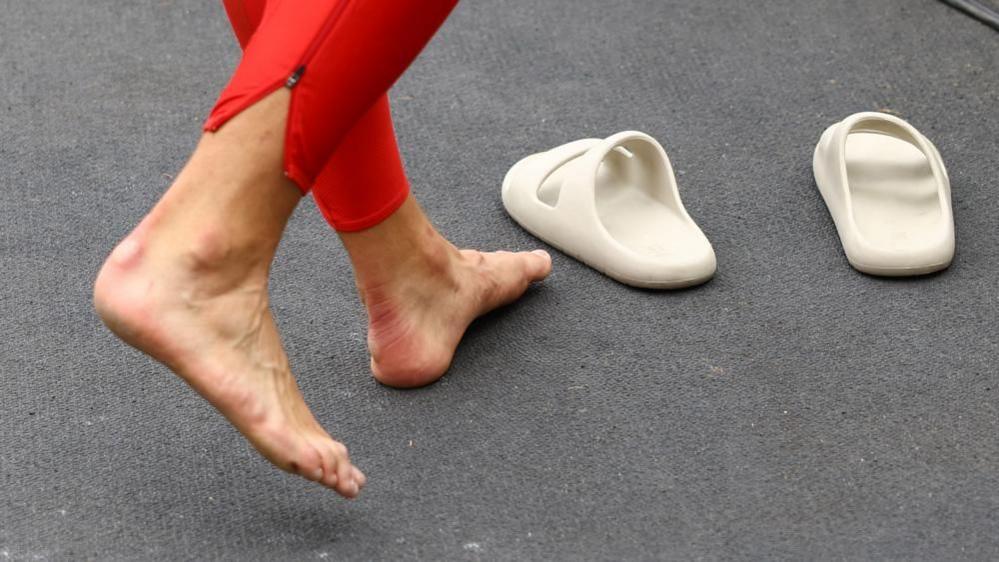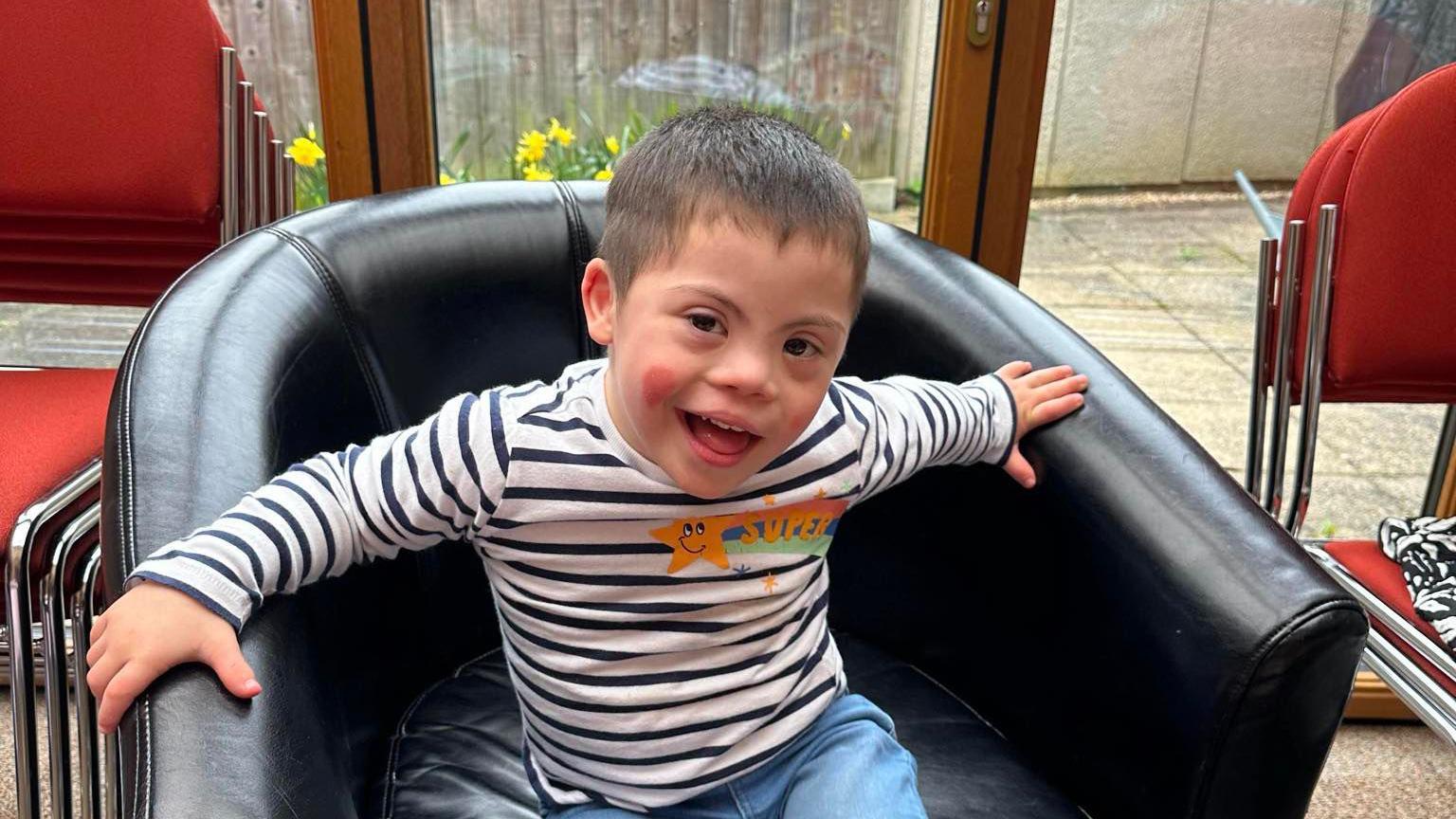Exercise helps adults with Down's syndrome - study

Exercise can improve life for adults with Down's syndrome, says a study
- Published
Exercise and "cognitive training" can improve life for adults with Down's syndrome, research has suggested.
Two Anglia Ruskin University academics based in Cambridge led a study involving more than 80 people.
A university spokesman said the "Mindsets" study, external, led by Dr Dan Gordon and Viviane Merzbach and published in the International Journal of Environmental Research and Public Health, was the first of its kind.
He said research had been carried out during an eight-week period and involved volunteers aged between 18 and 48.
"The Mindsets study is the first to investigate the benefits of a period of prescribed physical and cognitive exercises on a group of adults with Down's syndrome," said the spokesman.
"Overall, the study found that cognitive and physical exercises provide a framework for enhancing life satisfaction, self-efficacy and mood, which can lead to overall improvements in quality of life."
The spokesman added: "Participants felt significantly less tense from pre to post study and reported a significant reduction in anger scores."
He said participants had walked for 30 minutes three times a week and taken part in activities aimed at "boosting mental and executive function".

Academics from Anglia Ruskin University led the Down's syndrome study
Dr Gordon, an associate professor in cardiorespiratory exercise physiology, said: "This is the first study of its kind and we found that a period of prescribed training involving cognitive and physical exercises has the potential to improve the quality of life and mood amongst an adult community with Down's syndrome.
"These findings are important and provide further evidence that activities such as the ones used in this trial not only improve biological and cognitive health but may also enhance someone's quality of life and improve self-efficacy within adults with Down's syndrome.
"The potential benefits to the Down's syndrome community are huge if future, longer-term studies demonstrate that being more physically active and cognitively stimulated can promote self-worth and social integration."
Follow Cambridgeshire news on Facebook, external, Instagram, external and X, external. Got a story? Email eastofenglandnews@bbc.co.uk, external or WhatsApp us on 0800 169 1830
Related topics
- Published5 February 2024

- Published21 March 2024

- Published29 March 2024
